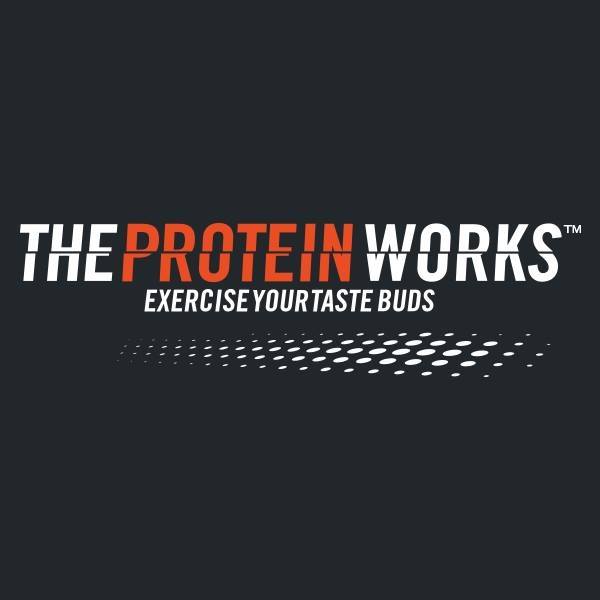
L-theanine and Caffeine; How These Two Nootropics Are a Dream-Team For Your Brain
L-theanine and Caffeine; how these two nootropics are a dream-team for your brain
“Name a more iconic duo… I’ll wait.” Well, let us shed some light on this winning combo.
There are some things that just work better together; gin and tonic, fish and chips, Ant and Dec… you get the idea! On their own they work just fine, however when paired together, they enhance each other’s best qualities and synergize to become an entity all of their own. The same is the case with nootropics!
What exactly is a nootropic?
Nootropics are ‘brain-boosting’ supplements that enhance cognitive performance and improve brain health. Nootropics work in several different ways to provide a range of brain benefits including improved memory, attention, focus, alertness, motivation, mood, stress resistance and relaxation to name a few (15). Read more about nootropics in our ‘What are Nootropics?’ article here.
Before we delve deeper into the combined benefits of L-theanine and caffeine, we should first discuss their best qualities individually. Let’s start with the most well-known of this dynamic duo: Caffeine.
Caffeine – Spilling the beans on the world’s favourite nootropic
When we think of caffeine, one of the first things that springs to mind is coffee; and it’s no wonder – coffee is the most popular drink worldwide with around two billion cups consumed every day (3)! However caffeine is also found in over sixty other plants, including tea leaves and cocoa beans.
So, How Does Caffeine Work?
Caffeine blocks adenosine; the neurotransmitter in the brain that makes us feel sleepy and also stimulates the central nervous system by promoting the release of other ‘feel-good’ neurotransmitters dopamine and serotonin (12).
What Are the Benefits Of Caffeine?
Studies have shown many other health benefits of caffeine, these include increasing focus, boosting memory, helping to power through a tough workout, caffeine has even been shown to reduce the odds of developing certain types of cancer (1,2, 7).
While caffeine has copious benefits, it can sometimes receive a bad rep as there are some common side effects of caffeine. For example, caffeine containing beverages are often stated as being diuretic (meaning they may cause a need to urinate) and are therefore dehydrating (13). However, whilst it is true that caffeinated drinks may have a mild diuretic effect; studies have shown that they don’t increase the risk of dehydration. In fact, the water content of your cup of tea/coffee actually contributes towards your intake of the recommended 8 glasses a day.
There are some other side effects to consuming caffeine which may have a negative impact. Caffeine may raise blood pressure, increase anxiety and potentially give you ‘jitters’ or ‘shakes’ (16). But worry not…Step forward L-theanine!
This is where L-theanine really shines, as when taken alongside caffeine, l-theanine maintains the positive benefits of caffeine, improves brain function all whilst counteracting any negative effects, such as the jitters. Amazing, right?
So, what is L-theanine?
If you’re more of a tea drinker, then you’ll already be acquainted with caffeine’s amino acid ally! L-theanine is an amino acid, found in the leaves of green tea (14).
The anxiety-relieving and brain-boosting properties of L-theanine are gaining a lot of attention in the nutrition world and media. Over the last few years, research has uncovered even more incredible benefits of this nutrient commonly known for increasing calmness, whilst simultaneously increasing focus and alertness. Research has also shown that L-theanine can increase relaxation because it helps to counteract the stimulating effects of caffeine (4, 9, 10).
What Does L-Theanine Do?
L-theanine can reduce our stress responses by imitating the actions of gamma-aminobutyric acid (GABA), an inhibitory neurotransmitter that blocks excitatory responses in the brain. Neurotransmitters are chemical messengers that transport messages between neurons (nerve cells) and other cells in the body, affecting everything from mood to involuntary body movements such as twitches. By blocking these excitatory responses, L-theanine can lower blood pressure, heart rate and stress hormone levels; by reducing these responses in the body, you will have an overall reduction in anxiety and stress (8,10,13),
When you are trying to unwind and relax, L-theanine can help your brain to create brain waves that are associated with relaxing practices such as meditation and daydreaming. If you are already relaxed, L-theanine boasts a prolonged calming effect that can help to encourage good quality sleep and wake up feeling refreshed and recharged.
That is another beauty of L-theanine; it helps you to relax before sleep and helps boost your brain once you wake up. If you take L-theanine when you wake up, it has been shown to increase focus and mental performance (6, 10, 11).
Relationship Goals – How L-Theanine & Caffeine Work Together
Like any successful relationship, nothing good comes easy and effort needs to be made for it is to work effectively. Both caffeine and L-theanine work hard together to bring out the best in each other.
We’ve discussed some of the downsides to caffeine (jitters, anxiety, increased blood pressure) and this is where L-theanine steps in to help it’s partner out and counteract these negative effects, while allowing caffeine to shine and work its brain-boosting benefits – without increasing blood pressure or anxiety (9, 14).
Feel a little slow on the uptake in the morning or come the 3pm slump? Studies have shown that when L-theanine and caffeine are combined together, they can significantly improve reaction times, attention span and accuracy when completing tasks – even when multitasking (5, 6).
If you avoid or limit caffeine because you suffer from crashes and/or headaches after consuming caffeine, bringing L-theanine into the mix could be the answer! Studies have shown that participants taking a combination of L-theanine and caffeine reported less fatigue and fewer headaches than when just taking caffeine alone (4, 9). Another reason many avoid or limit caffeine is due to the impact it can have on sleep. However, L-theanine steps up the plate once again and helps to reduce the adverse effects that caffeine can have on your sleep and improve overall sleep quality so you’ll be less likely to rely on caffeine to keep you going the next day – bonus (9).
The Golden Ratio – The Most Optimal L- Theanine : Caffeine Ratio
The recommended ratio of caffeine to theanine is generally 1:2 (100 mg of caffeine with 200 mg of theanine) to gain the optimal benefits of both (8, 9).
What’s better still is that you can take L-theanine and caffeine on an empty stomach, with or without food, and their effectiveness won’t be inhibited. Unlike many other nootropics, the caffeine and L-theanine combination is very well documented, extremely safe and works effectively multiple times a day (just try to avoid leaving it too late in the evening, if you can).
The Take Home:
Both Caffeine and L-theanine are brain boosters in their own right; however, when paired together they become a force to be reckoned with!
As discussed, the ratio of caffeine and l-theanine you choose will impact their effectiveness. It is recommended to reap the full benefits of this dream team that you stick to the golden ratio of 1:2. Whilst l-theanine is extremely safe, it may possibly make you feel sleepy in very high doses. Therefore, be wary of excessive doses (500 mg or more) if you are driving or operating machinery. Similarly, if you consume significantly more caffeine than L-theanine
Due to the nature of how caffeine is absorbed by the body in liquid form, it’s possible you may experience more immediate effects from drinking caffeine as opposed to taking it in capsule form. This is because capsules only start to be absorbed in the stomach rather than in the mouth, throat etc), which could restrict the amount of total caffeine available. So if you want the most bang for your buck, a drink is your best option.
Reference List:
- Astorino, Todd & Rohmann, Riana & Firth, Kelli. (2008). Effect of caffeine ingestion on one-repetition maximum muscular strength. European journal of applied physiology. 102. 127-32. 10.1007/s00421-007-0557-x.
- Borota, Daniel & Murray, Elizabeth & Keceli, Gizem & Chang, Allen & Watabe, Joseph & Ly, Maria & Toscano, John & Yassa, Michael. (2014). Corrigendum: Post-study caffeine administration enhances memory consolidation in humans. Nature neuroscience. 17. 10.1038/nn.3623.
- Britishcoffeeassociation.org. (2019). Coffee Facts | British Coffee Association. [online] Available at: https://www.britishcoffeeassociation.org/coffee-in-the-uk/coffee-facts
- Dodd, Fiona & Kennedy, D & Riby, Leigh & Haskell-Ramsay, Crystal. (2015). A double-blind, placebo-controlled study evaluating the effects of caffeine and L-theanine both alone and in combination on cerebral blood flow, cognition and mood. Psychopharmacology. 232. 10.1007/s00213-015-3895-0.
- Foxe, John & Morie, Kristen & Laud, Pete & Rowson, Matthew & Bruin, Eveline & Kelly, Simon. (2012). Assessing the effects of caffeine and theanine on the maintenance of vigilance during a sustained attention task. Neuropharmacology. 62. 2320-7. 10.1016/j.neuropharm.2012.01.020.
- Giesbrecht, Timo & Rycroft, Jane & Rowson, M.J. & Bruin, E.A.. (2010). The combination of L-theanine and caffeine improves cognitive performance and increases subjective alertness. Nutritional neuroscience. 13. 283-90. 10.1179/147683010X12611460764840.
- Gilbert, R. (1985). Caffeine consumption. Progress in clinical and biological research. 158. 185-213.
- Haskell-Ramsay, Crystal & Kennedy, David & Milne, Anthea & Wesnes, Keith & Scholey, Andrew. (2008). The Effects of L-theanine, Caffeine and their Combination on Cognition and Mood. Biological psychology. 77. 113-22. 10.1016/j.biopsycho.2007.09.008.
- Jang, Hwan-Soo & Jung, Ji & Jang, Il-Sung & Jang, Kwang-Ho & Kim, Sang-Hyun & Ha, Jeoung-Hee & Suk, Kyoungho & Lee, Maan-Gee. (2012). L-theanine partially counteracts caffeine-induced sleep disturbances in rats. Pharmacology, biochemistry, and behavior. 101. 217-21. 10.1016/j.pbb.2012.01.011.
- Kimura, Kenta & Ozeki, Makoto & Juneja, Lekh & Ohira, Hideki. (2007). L-Theanine reduces psychological and physiological stress responses. Biological psychology. 74. 39-45. 10.1016/j.biopsycho.2006.06.006.
- Owen, Gail & Parnell, Holly & Bruin, Eveline & Rycroft, Jane. (2008). The combined effects of L-theanine and caffeine on cognitive performance and mood. Nutritional neuroscience. 11. 193-8. 10.1179/147683008X301513.
- Patocka, Jiri & Navratilova, Zdenka & Krejcar, Ondrej & Kuca, Kamil. (2019). Coffee, Caffeine And Cognition: A Benefit or Disadvantage?. Letters in Drug Design & Discovery. 16. 10.2174/1570180816666190620142158.
- Poole, Robin & Kennedy, Oliver & Roderick, Paul & Fallowfield, Jonathan & Hayes, Peter & Parkes, Julie. (2017). Coffee consumption and health:umbrella review of meta-analyses of multiple health outcomes. BMJ. 359. j5024. 10.1136/bmj.j5024.
- Rogers, Peter & Smith, Jessica & Heatherley, Susan & Pleydell-Pearce, C. (2008). Rogers PJ, Smith JE, Heatherley SV, Pleydell-Pearce CW. Time for tea: mood, blood pressure and cognitive performance effects of caffeine and theanine administered alone and together. Psychopharmacology 195: 569-577. Psychopharmacology. 195. 569-77. 10.1007/s00213-007-0938-1.
- Sakhare Vitthalrao, Leena. (2018). NOOTROPICS AGENTS: PHARMACEUTICAL ASPECT, COMMON EXAMPLES AND THEIR APPLICATIONS. Journal of Drug Delivery and Therapeutics. 8. 59-61. 10.22270/jddt.v8i5-s.1940.
- Shirlow, M.J. & Mathers, C.D.. (1985). A Study of Caffeine Consumption and Symptoms: Indigestion, Palpitations, Tremor, Headache and Insomnia. International journal of epidemiology. 14. 239-48. 10.1093/ije/14.2.239.






No Comments yet!